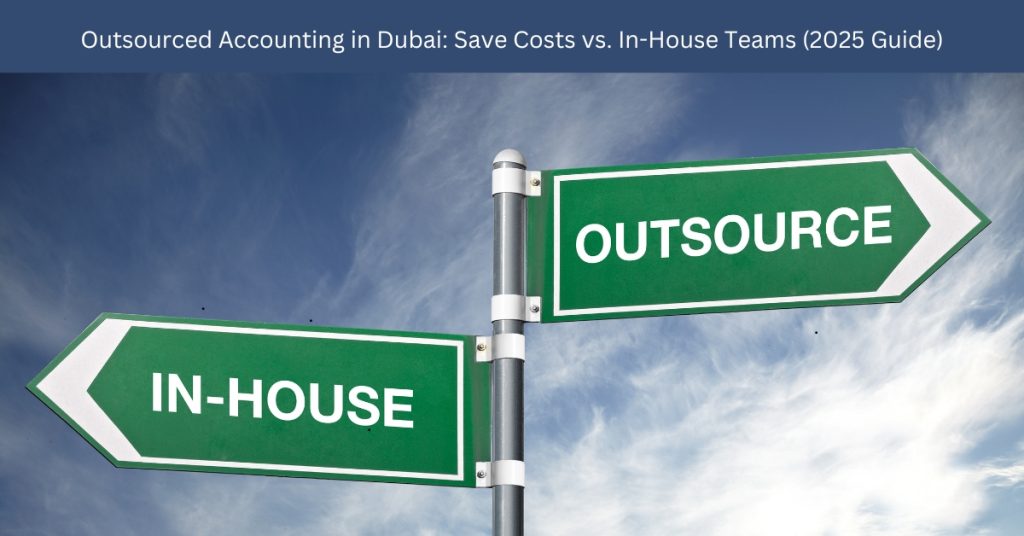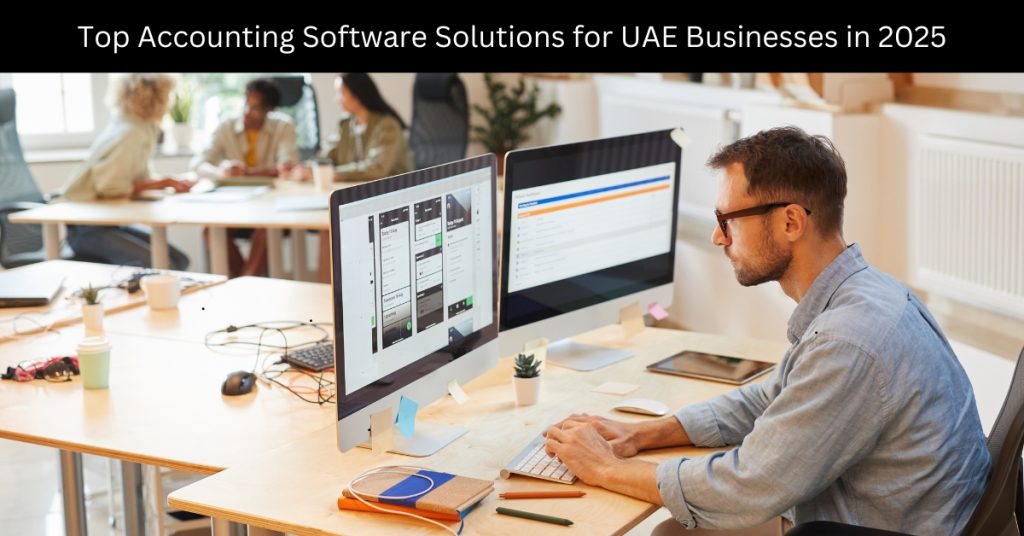In today’s fast-paced UAE business environment, accounting automation has become essential for streamlining financial processes, increasing efficiency, and ensuring accuracy.
By utilizing AI-powered tools, cloud-based systems, and automated tax compliance, businesses can reduce the time spent on manual tasks like data entry, invoice processing, and VAT filing. Automation not only reduces human error but also enhances real-time decision-making through interactive dashboards.
This blog article explores the key benefits of accounting automation, the processes that can be automated, the tools available for UAE businesses, and a step-by-step approach to implementing automation in your organization.
Key Takeaways
| Key Takeaway | Description |
|---|---|
| Time Efficiency | Automation reduces the time spent on repetitive tasks like invoicing, reconciliation, and data entry, boosting operational efficiency. |
| Accuracy and Error Reduction | AI tools minimize the risk of human errors, ensuring accurate financial reporting and tax compliance. |
| Cost Savings | Automating tasks lowers labor costs and reduces the chances of penalties due to errors in financial reporting or tax filing. |
| Real-Time Insights | Cloud accounting tools provide real-time data, enabling businesses to make informed decisions promptly. |
| VAT and Tax Compliance | Automated systems help businesses comply with UAE VAT laws and simplify the VAT filing process, reducing the risk of errors and fines. |
| Scalability | Cloud-based accounting tools grow with your business, ensuring long-term financial management success. |
Why UAE Businesses Need Accounting Automation
The UAE’s business environment is thriving, but with this growth comes increased complexity in managing finances. Many businesses continue to rely on manual accounting processes, often using spreadsheets or traditional methods that can slow down operations. These time-consuming processes include tasks like data entry, invoice reconciliation, and approval workflows.
Accounting automation has emerged as a solution to these challenges. By leveraging AI-powered tools and cloud-based systems, businesses can automate repetitive accounting tasks, enhance efficiency, and reduce the chances of human error. This transition allows finance teams to focus on more strategic work, improving overall financial management.
Key benefits of accounting automation include:
-
Reduced time spent on manual tasks
-
Fewer errors and improved data accuracy
-
Streamlined VAT filing and tax compliance in the UAE
-
Improved financial reporting and data accessibility

Key Benefits of Accounting Automation for UAE Businesses
1. Save Time with Automation
Automating your accounting processes can drastically reduce the time spent on manual tasks. For example, automating invoice generation, data entry, and reconciliation can reduce processing time by as much as 80%. This frees up valuable resources to focus on financial analysis and strategy rather than repetitive manual work.
2. Enhance Accuracy
Manual data entry is one of the most common sources of errors in accounting. AI accounting tools use advanced algorithms to process financial data with high precision. With automation, businesses can avoid common mistakes like duplicate entries, incorrect tax calculations, or missed invoices.
Tools that automate reconciliation can instantly match bank transactions with recorded entries, flagging discrepancies in real time and speeding up the month-end close process.
3. Cost-Efficiency
Automated accounting reduces the reliance on manual labor, resulting in significant cost savings for businesses. By reducing errors and speeding up processes, businesses can save money on compliance-related penalties and late fees. Additionally, cloud accounting solutions allow teams to collaborate remotely, further reducing operational costs.
4. Real-Time Insights and Dashboards
Cloud-based accounting solutions provide businesses with real-time financial data through interactive dashboards. This allows business owners and finance teams to make informed decisions quickly. Visualized data, such as income statements, balance sheets, and cash flow reports, are available at any time, facilitating better decision-making.

Critical Processes You Can Automate Today
Automation can improve many aspects of your accounting workflows. Let’s take a closer look at the most common processes ripe for automation in the UAE context.
1. Data Entry and OCR Tools
One of the most tedious and error-prone tasks is manual data entry. Fortunately, Optical Character Recognition (OCR) technology has made it easier than ever to automate this process. OCR software scans invoices, receipts, and other financial documents, extracting relevant information and directly inputting it into your accounting system.
Best OCR Software for Receipts in UAE:
| OCR Tool | Features | Price Range |
|---|---|---|
| ABBYY FlexiCapture | High accuracy, multi-format support | $$ |
| Expensify | Receipts scanning with automatic categorization | $$ |
| Zoho Expense | OCR, VAT tracking, and expense approvals | $ |
2. Automating Invoicing and Payments
Automating invoicing and payment scheduling can help reduce human error and save time. Automated invoicing systems generate invoices based on pre-defined templates and payment terms. These systems can also integrate with bank accounts to schedule and process payments automatically.
Automation helps businesses stay on top of their payments, reducing late fees and ensuring better cash flow management.
3. Bank Reconciliation Automation
Manually reconciling bank statements is one of the most time-consuming accounting tasks. Automated reconciliation tools integrate with your bank’s feed, matching transactions in real time with entries in your accounting software. Discrepancies are flagged immediately for quick resolution.
4. Expense Management
Mobile apps integrated with accounting systems allow employees to easily submit their expenses by scanning receipts. Automation then categorizes these expenses according to company policies, routing them for approval without the need for manual intervention. This speeds up reimbursements and reduces administrative overhead.
5. Payroll Automation
Managing payroll can be complex, especially for businesses with multiple employees. Payroll automation reduces errors in wage calculations, tax deductions, and benefits. It integrates with HR systems to pull employee data and ensures timely and compliant payments to employees. UAE businesses also benefit from payroll systems that automatically apply UAE labor laws and tax regulations.

Using Automation for VAT Filing & UAE Compliance
1. VAT Filing Automation in Dubai
VAT is a critical aspect of business compliance in the UAE. The Federal Tax Authority (FTA) has strict guidelines on VAT calculation and filing, and businesses must ensure they are compliant to avoid penalties. Automating VAT filing not only simplifies this process but also ensures that businesses meet their VAT obligations on time.
Accounting tools with VAT modules can:
-
Automatically calculate VAT on all eligible transactions
-
Generate VAT reports in the required format
-
Submit VAT returns directly to the FTA portal
Automate VAT Filing in Dubai using AI-powered accounting systems helps businesses remain compliant without the hassle of manual tracking.
2. Corporate Tax Compliance
Corporate tax laws in the UAE are constantly evolving, and automation tools are designed to keep up with changes. Automated accounting systems help businesses:
-
Calculate and file corporate taxes based on accurate financial data
-
Maintain detailed documentation for audits
-
Ensure compliance with the latest tax regulations
Choosing the Right Tools and Platforms
When selecting the right accounting automation tools, it’s crucial to consider the unique needs of your business. Here are some features to look for in AI accounting tools for UAE businesses:
1. Must-Have Features for Accounting Automation Tools
| Feature | Why It Matters |
|---|---|
| AI-powered OCR | Automatically extract and categorize data from receipts and invoices |
| Approval Workflows | Automate routing of invoices and expenses for approval, reducing delays |
| Bank Reconciliation | Automatically match bank transactions with accounting entries |
| VAT & Tax Compliance | Keep track of tax laws and automate VAT and corporate tax filings |
| Real-Time Financial Dashboards | Visualize financial data for better decision-making |
| Security | Ensure compliance with data protection standards (GDPR, ISO 27001) |
| Scalability | Choose a tool that can grow with your business needs |
2. Example Platforms to Consider
-
Zoho Books: Great for small to medium-sized businesses, offers automation for invoicing, payments, and VAT filing.
-
QuickBooks Online: A popular tool that automates invoicing, expenses, and tax filing, with a focus on ease of use.
-
Xero: Known for its cloud-based platform that integrates with a variety of business apps for automated accounting processes.

Step-by-Step Guide to Implementing Accounting Automation in Your UAE Business
1. Evaluate Your Current Processes
Before implementing automation, assess your current accounting processes. Identify time-consuming tasks such as manual data entry, reconciliations, and approval workflows. By focusing on these pain points, you can determine where automation will provide the most benefit.
2. Choose the Right Tool or Integration
Decide whether you want to fully automate your accounting system or integrate automation tools with your existing software. For example, you could start with OCR tools for receipts and then expand to automated VAT filing or payroll.
3. Invest in the Right Software
Ensure that the accounting software you choose is tailored to the unique needs of your UAE business. Look for the following:
-
Tax compliance features specific to UAE VAT and corporate tax laws
-
Integration capabilities with banking and other business systems
-
Cloud-based access for real-time collaboration
-
Scalability to grow as your business expands
4. Implement in Phases
Start by automating the most straightforward tasks, such as data entry or invoice processing. As your team becomes familiar with the new tools, expand automation to more complex tasks like payroll and reconciliation.
5. Train Your Team
Provide training for your accounting team to ensure they are comfortable with the new tools. Focus on how automation changes their roles and emphasize strategic tasks such as financial analysis and planning.

Conclusion: Embrace the Future of Finance in the UAE
Incorporating accounting automation into your UAE business is a crucial step toward increasing efficiency, accuracy, and compliance. By leveraging AI-powered tools, automated VAT filing, and cloud-based platforms, businesses can save time, reduce errors, and focus on more strategic activities.
Automation is not just about replacing manual tasks—it’s about enhancing your team’s ability to focus on high-value work. The right accounting automation tools will allow your business to stay ahead in an increasingly competitive market.
If you’re ready to streamline your finances and take advantage of automation, start by evaluating your current processes and choosing the right tools for your needs. Don’t hesitate to consult with experts to ensure a smooth transition to an automated accounting system. The future of finance is here, and it’s time to embrace it.
FAQs
-
What is accounting automation?
Accounting automation uses technology to automate repetitive financial tasks, such as invoicing, data entry, payroll, and VAT filing. This helps businesses save time, reduce errors, and streamline their accounting processes for greater efficiency.
-
Why is VAT filing automation important for UAE businesses?
VAT filing automation is essential for ensuring compliance with UAE tax laws. It helps businesses calculate VAT accurately, generate VAT reports, and submit them to the Federal Tax Authority on time, avoiding penalties and fines.
-
How can accounting automation reduce errors in financial reporting?
Automation tools leverage AI algorithms to process financial data, significantly reducing human errors like incorrect data entry, missed invoices, and incorrect tax calculations, leading to more accurate financial records and reports.
-
What tools are recommended for accounting automation in the UAE?
Popular tools for accounting automation in the UAE include Zoho Books, QuickBooks Online, and Xero. These platforms offer features like automated invoicing, expense management, VAT filing, and bank reconciliation to simplify financial processes for businesses of all sizes.



